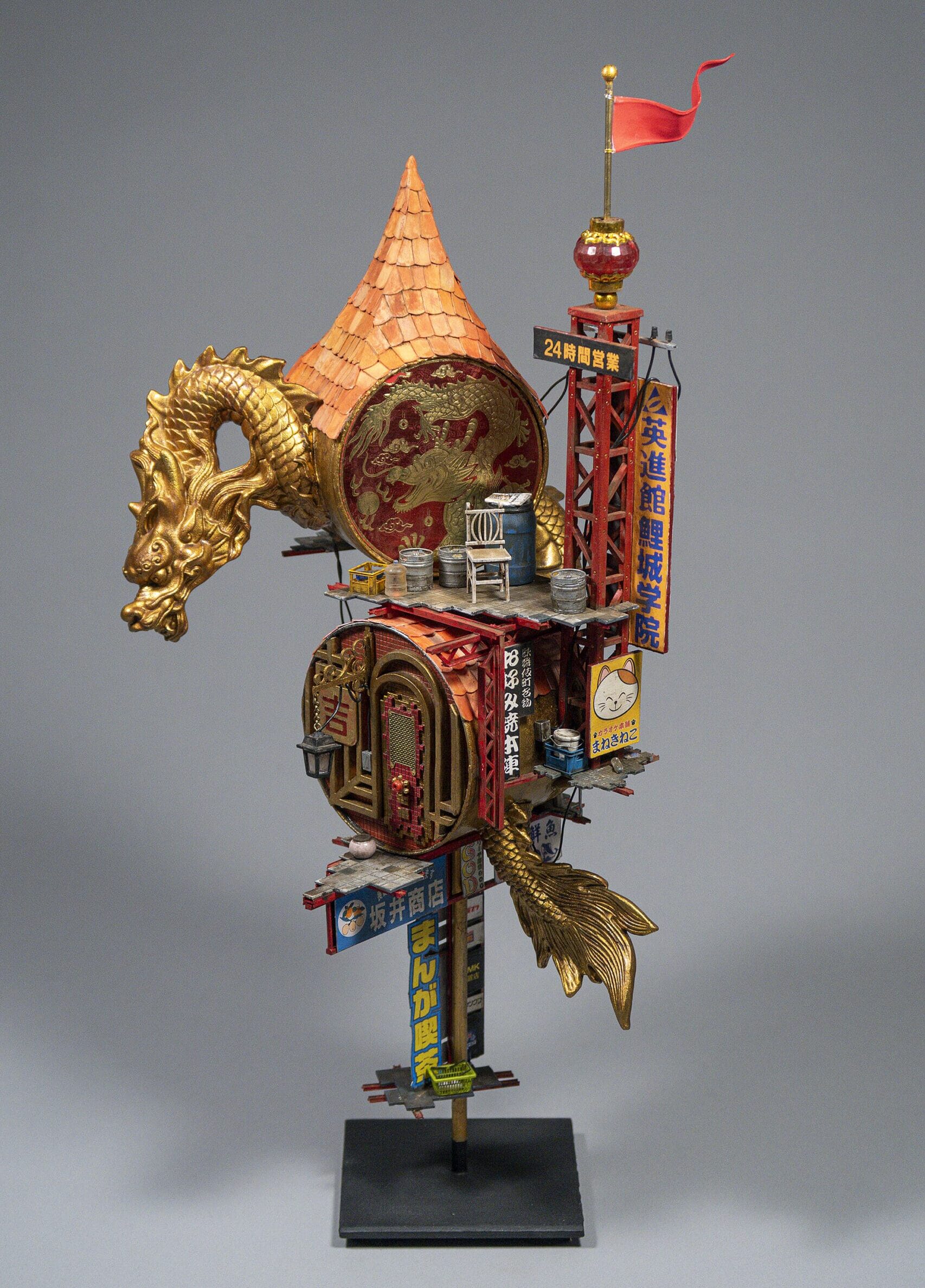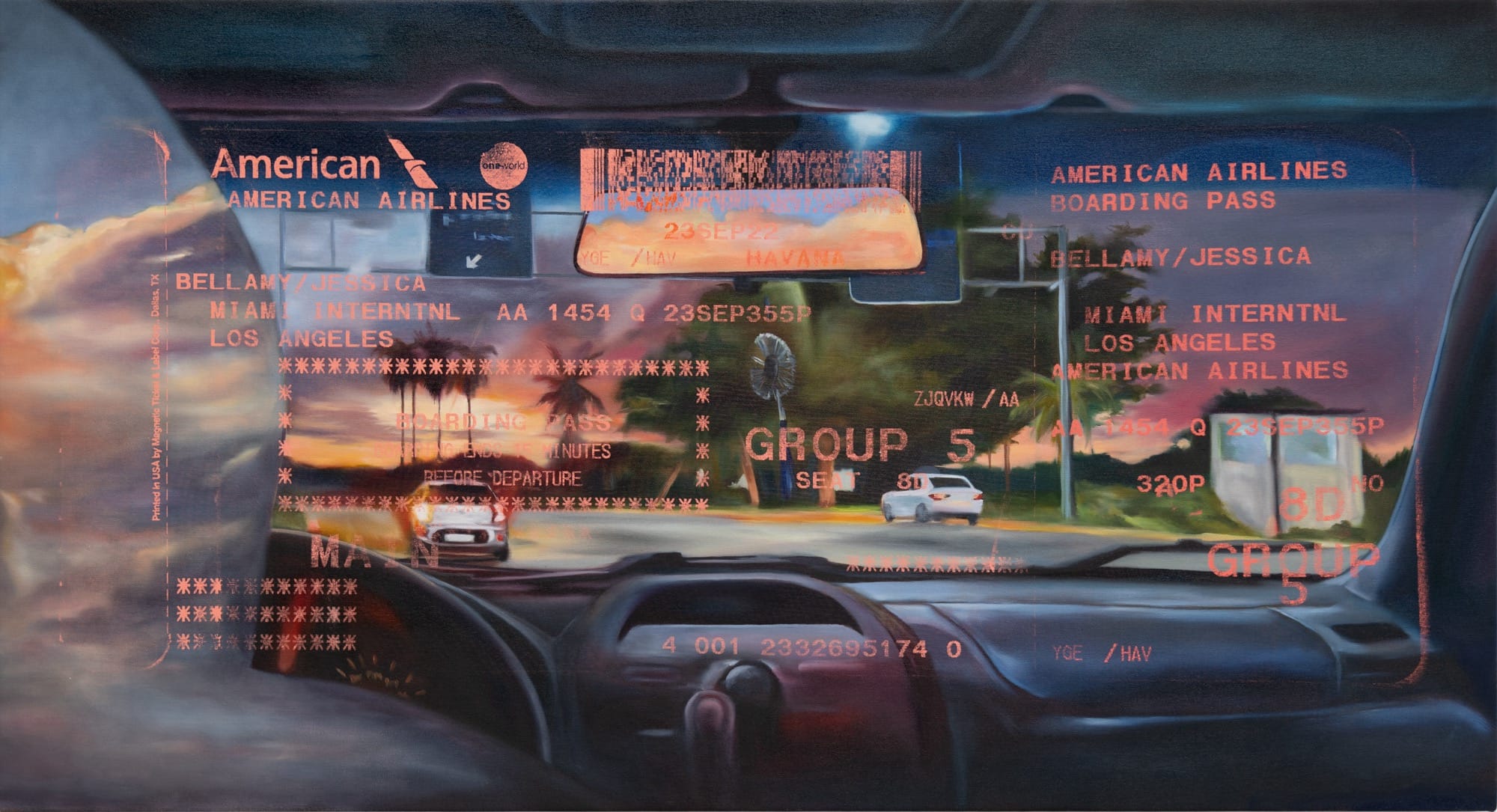“Defensive” (2022), ash, sweetgrass, and dye, 12 1/2 x 7 1/2 x 7 1/2 inches. Image courtesy of Eric Stoner. All images © Jeremy Frey, shared with permission
Since time immemorial, the Wabanaki—People of the Dawn—have harvested sweetgrass in the summer for use in ceremonies and prayer and to make baskets, braids, pottery, and medicine. In Maine, the plant grows along the coast in wetlands and marshes and is named for its enchanting fragrance that blends notes of vanilla, evergreen, earth, and salt. Harvesting only what’s needed stimulates the grass to send up new shoots.
When European colonists established settlements along the eastern coastline, they severely curtailed access to sweetgrass as they encroached on the Indigenous tribes’ traditional territories. The Wabanaki, comprising the Maliseet, Micmac, Passamaquoddy, and Penobscot tribes, were often prohibited from harvesting the sacred grass. Rights are now restored in some areas, yet in spite of the struggle to retain access, the material continues to play an enormously rich role in Indigenous culture, not least in the region’s exquisite craft traditions.
Jeremy Frey was raised on the Passamaquoddy Indian Township Reservation in Maine and carries on the ancestral Wabanaki practice of weaving sweetgrass into elaborate baskets. “A descendant of a long line of Indigenous weavers, the artist learned traditional Wabanaki methods from his mother and by apprenticing at the Maine Indian Basketmakers Alliance,” says a statement on his site.
Detail of “Defensive”
Foraging for the materials that he processes and shapes into the sculptural forms, Frey continues traditional methods while expanding on the possibilities of texture and color. His work nods to the formal qualities of ancient Greek and Roman pottery, experimenting with the timeless elements comprising a vessel, while also following a contemporary intuition. No two baskets are alike; subtle variations in the colors, weaves, and overall form all emerge from the core ingredients of sweetgrass, wood from brown ash trees, dye, and meticulous attention to detail.
“Frey gathers every material that he uses in his practice—black ash, sweetgrass, cedar, spruce root, birch bark, and porcupine quills,” says Ramey Mize, Associate Curator of American Art at the Portland Museum of Art, where the artist’s work is currently the focus of the exhibition Woven. Mize adds that Frey “creates works of exquisite complexity that reflect not only his immense technical skill but also his profound ecological knowledge and relationship with the environment of the north woods.”
Woven continues in Portland, Maine, through September 15, then travels to the Art Institute of Chicago, where it will open on October 26. Find more on Frey’s website and Instagram.
“Basket within Basket” (2012), ash, sweetgrass, and dye, 9 x 13 x 13 inches. Image courtesy of Eric Stoner
“Duality” (2024), ash, sweetgrass, synthetic dye, and granite, 14 3/8 x 13 5/8 x 13 5/8 inches. Image courtesy of Karma, New York and Los Angeles
“Blue Point Urchin” (2016), ash, sweetgrass, and dye, 5 x 9 x 9 inches. Image courtesy of Eric Stoner
“Observer” (2022), ash, sweetgrass, porcupine quill on birch bark, and dye, 13 1/2 x 10 1/2 x 10 1/2 inches. Image courtesy of Eric Stoner
Detail of “Observer”
“Radiance” (2024), black ash, sweetgrass, and synthetic dye, 22 x 12 inches. Image courtesy of Karma, New York and Los Angeles
“Legacy” (2024), black ash, sweetgrass, and synthetic dye 22 x 11 1/4 x 11 1/4 inches. Image courtesy of Karma, New York and Los Angeles
Do stories and artists like this matter to you? Become a Colossal Member today and support independent arts publishing for as little as $5 per month. The article Elaborate Baskets by Jeremy Frey Weave Indigenous Tradition and Contemporary Form appeared first on Colossal.


